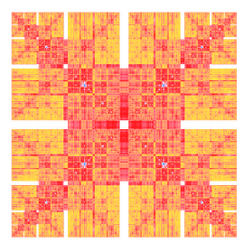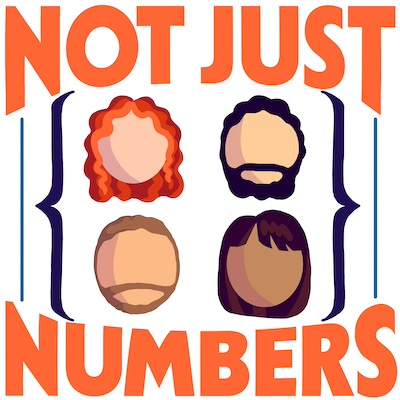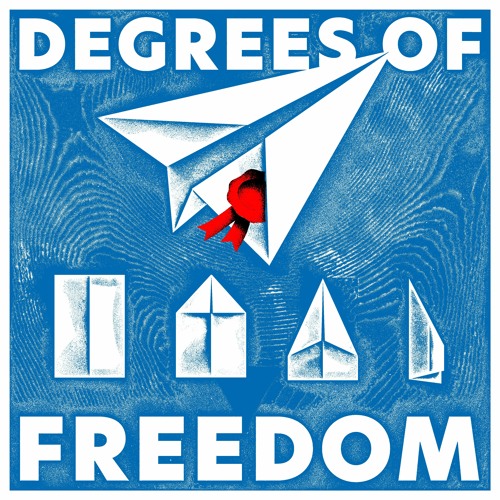The Day We Fight Back
Today, 11th of February 2014 (anniversary of Aaron Swartz death) a lot of national and international organizations are showing a black banner with a big text saying: the Day We Fight Back.
Mass surveillance, like that conducted by the NSA, is always illegal. Privacy is a fundamental human right, and is central to the maintenance of democratic societies. It is essential to human dignity and it reinforces other rights, such as freedom of expression and information, and freedom of association, and is recognised under international human rights law.
This is not made up by me, but stated in a number of international tratises:
- Universal Declaration of Human Rights Article 12,
- United Nations Convention on Migrant Workers Article 14,
- UN Convention of the Protection of the Child Article 16,
- International Covenant on Civil and Political Rights Article 17,
- Johannesburg Principles on National Security, Free Expression and Access to Information,
- Camden Principles on Freedom of Expression and Equality;
- regional conventions including
- African Charter on the Rights and Welfare of the Child Article 10,
- American Convention on Human Rights Article 11,
- African Union Principles on Freedom of Expression,
- Article 5 of the American Declaration of the Rights and Duties of Man,
- Article 21 of the Arab Charter on Human Rights,
- Article 8 of the European Convention for the Protection of Human Rights and Fundamental Freedoms.
Since few months we had the confirmation that even the most important defender of human rights and democracy is daily violating them unpunished.
The Day We Fight Back’s main international action is to sign and promote the 13 Principles that outline how communications surveillance can be conducted consistent with human rights and serve as a model for surveillance reform. Over the past year, nearly 370 organizations have come together to support it. Today is time for us to give it a greater meaning.
I want to give you a summary of these principles, part of the official text has been deleted or rewritten by me to summarize it: please refer to the 13 Principles official page to read the official full text.
LEGALITY
Any limitation to the right to privacy must be prescribed by law. This law must be clear, precise and updated.LEGITIMATE AIM
Laws should only permit communications surveillance by specified State authorities and with precise rules and boundaries and cannot be in any way a measure to discriminate.NECESSITY
Laws permitting communications surveillance by the State must limit surveillance to that which is strictly and demonstrably necessary to achieve a legitimate aim.ADEQUACY
Any instance of communications surveillance authorised by law must be appropriate to fulfil the specific legitimate aim identified.PROPORTIONALITY
Communications surveillance should be regarded as a highly intrusive act that interferes with the rights to privacy and freedom of opinion and expression, threatening the foundations of a democratic society. Decisions about communications surveillance must be made by weighing the benefit sought to be achieved against the harm that would be caused to the individual’s rights and to other competing interests, and should involve a consideration of the sensitivity of the information and the severity of the infringement on the right to privacy. This is a very important point, please have a look at the full textCOMPETENT JUDICIAL AUTHORITY
Determinations related to communications surveillance must be made by a competent judicial authority that is impartial and independent.DUE PROCESS
Due process requires that States respect and guarantee individuals’ human rights by ensuring that lawful procedures that govern any interference with human rights are properly enumerated in law, consistently practiced, and available to the general public.USER NOTIFICATION
Individuals should be notified of a decision authorising communications surveillance with enough time and information to enable them to appeal the decision, and should have access to the materials presented in support of the application for authorisation. Non that there are circumstances, explicitly stated in the principles, in which this can be delayed until the end of the investigation.TRANSPARENCY
States should be transparent about the use and scope of communications surveillance techniques and powers.PUBLIC OVERSIGHT
States should establish independent oversight mechanisms to ensure transparency and accountability of communications surveillance.INTEGRITY OF COMMUNICATIONS AND SYSTEMS
In order to ensure the integrity, security and privacy of communications systems, and in recognition of the fact that compromising security for State purposes almost always compromises security more generally, States should not compel service providers or hardware or software vendors to build surveillance or monitoring capability into their systems, or to collect or retain particular information purely for State surveillance purposes.SAFEGUARDS FOR INTERNATIONAL COOPERATION
The mutual legal assistance treaties (MLATs) and other agreements entered into by States should ensure the highest level of protection for individuals. States may not use mutual legal assistance processes and foreign requests for protected information to circumvent domestic legal restrictions on communications surveillance. The legal procedures and other agreements should be clearly documented, publicly available, and subject to guarantees of procedural fairness.SAFEGUARDS AGAINST ILLEGITIMATE ACCESS
States should enact legislation criminalising illegal communications surveillance by public or private actors. The law should provide sufficient and significant civil and criminal penalties, protections for whistle blowers, and avenues for redress by affected individuals. This point in particular contains directives to delete the material after investigation are conclused and to make it ineffective if gained by illegal means.
You can read some interesting comments in a recent post of the EFF: International Community Unites to Protest Big Brother.
###But why are we so upset, and why should you be?
Have you ever wandered what the NSA and GCHQ are doing? Here’s just some of what we’ve learned, or had confirmed, in 2013 (from Reddit blog).
Collecting call records and contact lists
The NSA collects virtually every phone call record in the United States—that’s who you call, who calls you, when, for how long, and sometimes where. (Guardian)
The NSA “is harvesting hundreds of millions of contact lists from personal e-mail and instant messaging accounts around the world, many of them belonging to Americans.” (Washington Post)
Collecting data from the fiber-optic backbone of the Internet
- The NSA is collecting “communications on fiber cables and infrastructure as data flows past,” as part of what it calls “upstream” collection, including content and metadata of emails, web activity, chats, social networks, and everything else. (Washington Post)
- NSA “has secretly broken into the main communications links that connect Yahoo and Google data centers around the world” and has “positioned itself to collect at will from hundreds of millions of user accounts, many of them belonging to Americans.” (Washington Post)
Collecting email and SMS messages
- The NSA “is searching the contents of vast amounts of Americans’ e-mail and text communications into and out of the country, hunting for people who mention information about foreigners under surveillance, according to intelligence officials”. (New York Times)
Collecting cellphone location data
- The NSA “is gathering nearly 5 billion records a day on the whereabouts of cellphones around the world.” (Washington Post)
Undermining encryption standards
- The NSA “is winning its long-running secret war on encryption, using supercomputers, technical trickery, court orders and behind-the-scenes persuasion to undermine the major tools protecting the privacy of everyday communications in the Internet age.” (New York Times and ProPublica)
Monitoring people’s porn usage
- The NSA has “has been gathering records of online sexual activity and evidence of visits to pornographic websites as part of a proposed plan to harm the reputations of those whom the agency believes are radicalizing others through incendiary speeches.” (Washington Post)
Monitoring online gaming communities
- The NSA and GHCQ spied on online games, including World of Warcraft and Second Life. (ProPublica)
So much more
- The NSA “is secretly piggybacking on the tools that enable Internet advertisers to track consumers, using “cookies” and location data to pinpoint targets for government hacking and to bolster surveillance.” (Washington Post)
- NSA “officers on several occasions have channeled their agency’s enormous eavesdropping power to spy on love interests.” (Wall Street Journal)
For additional informations have a look at one of the following links:
- Mass Surveillance in the US - Wikipedia
- NSA Spaying - EFF.org
- Guardian’s NSA Files Decoded
- Global surveillance page by the University of Oslo
And if you think that they have the right to do it, you should definitely read this post of the EFF: 8 Common Excuses for NSA Surveillance - and How to Bust Them.
We claim that we are civilised, we praise ourselves with the freedom of speech, and we stand with the flag of fighters for the human rights. But we don’t deserve it. We have now the chance of changing things before it’s too late, let’s at least try to do it!


